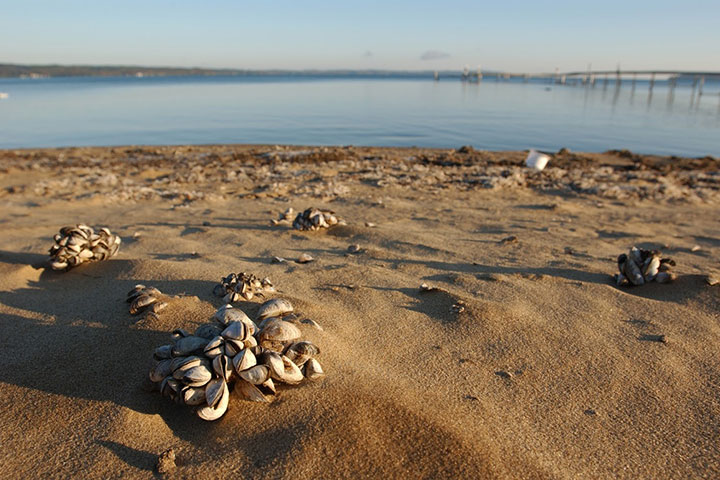Environmental DNA-based quantification of dreissenid mussels and their impacts on freshwater bacterioplankton
Environmental DNA-based quantification of dreissenid mussels and their impacts on freshwater bacterioplankton
Environmental DNA-based quantification of dreissenid mussels and their impacts on freshwater bacterioplankton
Program: Water Center U-M Capacity Building Grants
All Water Center U-M Capacity Building Grants projects »

Photo courtesy of Michigan Sea Grant
Investigators
- Vincent Denef, U-M Ecology and Evolutionary Biology
- Thomas Johengen, U-M Cooperative Institute for Limnology and Ecosystems Research
Additional Core Team Members
- Tom Nalepa, U-M Water Center
Project Summary
The impacts of dreissenid mussels, a widespread and abundant invasive species, on biological communities has been the focus of much study but very little is known regarding the impacts of these mussels on freshwater bacterial communities. Bacteria are the most important processors of organic carbon originating from local phytoplankton populations and runoff from the surrounding land and are key drivers of other elemental cycles including nitrogen and phosphorus. The functioning of bacterial communities determines ecosystem processes and services, such as carbon source/sink properties of aquatic systems, nutrient regeneration, and release of the greenhouse gas nitrous oxide.
This project will establish a novel quantitative assay for rapid zebra mussel population assessment and will reveal how zebra mussels affect bacterial abundance, community structure, and functioning. The eDNA assay will be used to assess zebra mussel invasion and relative population size in 16 regional inland lakes. For four of the lakes, relative impacts of dreissenid mussels will be determined by characterizing differences in the pelagic and benthic microbial community structure and metabolic potential using metagenomics approaches- sequencing of environmental DNA extracted from filtered microbial cells.
Invasion microbiology is a fledgling field. Impacts of invasive species on bacterial communities have received limited attention thus far and advancing research in this area will increase the depth and breadth of freshwater research at the University of Michigan. This project will form the foundation of a program on campus focused on the impact of invasive species on microbial communities and their functioning relevant to global elemental cycling- including climate change, nuisance blooms, and public health.